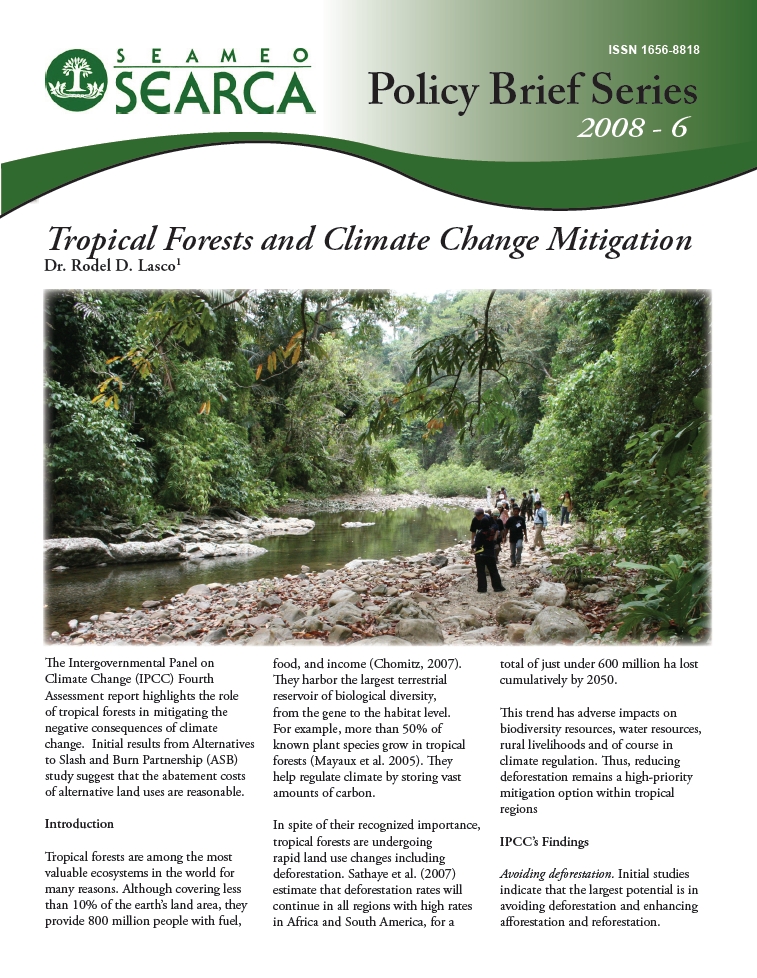Tropical Forests and Climate Change Mitigation
Tropical forests are among the most valuable ecosystems in the world for many reasons. Although covering less than 10% of the earth’s land area, they provide 800 million people with fuel, food, and income (Chomitz 2007). They harbor the largest terrestrial reservoir of biological diversity, from the gene to the habitat level. For example, more than 50% of known plant species grow in tropical forests (Mayaux et al. 2005). They help regulate climate by storing vast amounts of carbon.
In spite of their recognized importance, tropical forests are undergoing rapid land use changes including deforestation. Sathaye et al. (2007) estimate that deforestation rates will continue in all regions with high rates in Africa and South America, for a total of just under 600 million ha lost cumulatively by 2050.
This trend has adverse impacts on biodiversity resources, water resources, rural livelihoods and of course in climate regulation. Thus, reducing deforestation remains a high-priority mitigation option within tropical regions.














